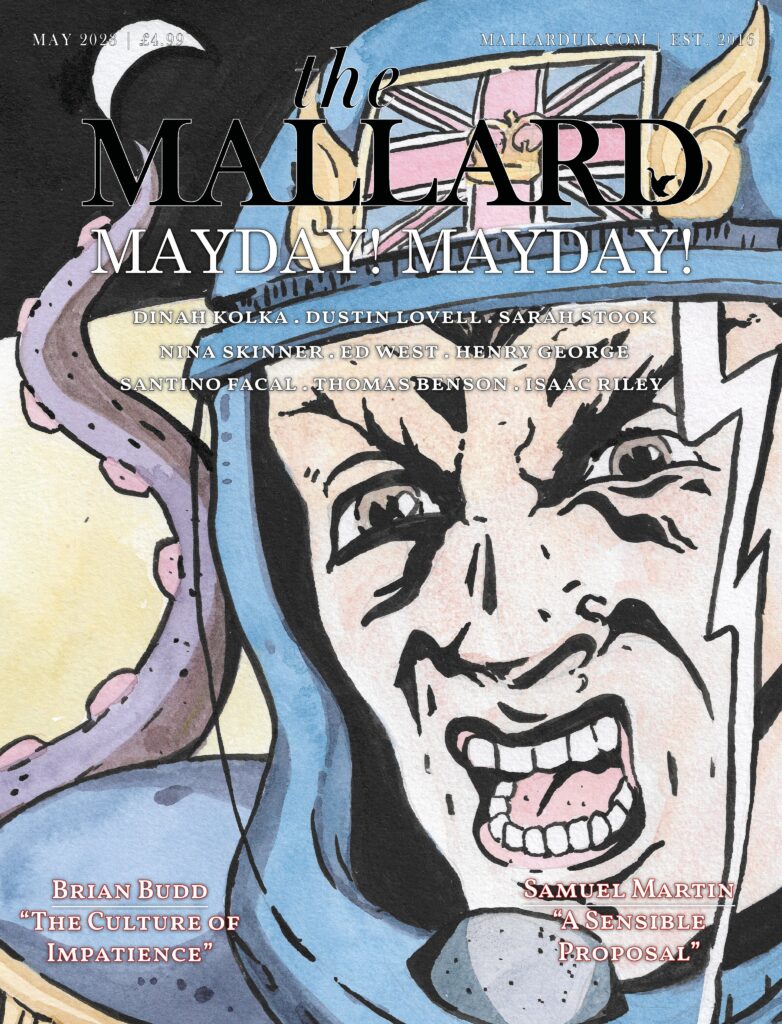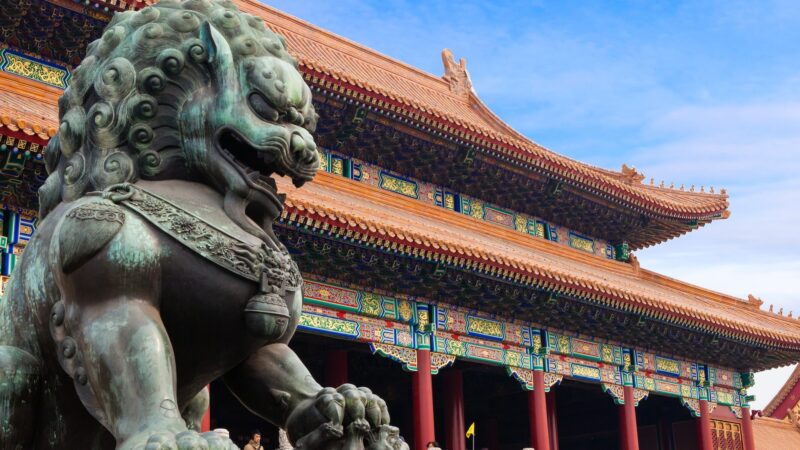Culture is often a bearer of such practical wisdom. Indeed, the reason we listen to the experienced and wise, despite their lack of formal education, is that their experience has imparted practical wisdom. Theoretical wisdom is implicit in this down to earth practicality. Although the village elder might not be able to say why a certain behaviour is virtuous, her account, being correct, could be elaborated to reveal a true and natural principle. Extending this to an entire culture, we have one basis for social conservatism. The accumulated experience of ages has a sort of implicit wisdom to it, which can be potentially made into a theory, even though nobody may have yet done so. However, this isn’t enough, lest we be agnostic pragmatists like David Hume. For the one clinging to classical ideas, all practical wisdom has a theory behind it whose objective springs we can discover through reason.
One such cultural heirloom that is greatly misunderstood these days is aristocracy. Most cultures in human history have had aristocracies of some type. A noble class existed in ancient Mesopotamia, Persia, Mesoamerica, the Andes, Egypt, China, Japan, Greece, Rome, among the Celts, as well as mediaeval and early modern Europe. Indeed, aristocracy of some type has been one of the most common institutions of humanity across history. Yet in the last three hundred years, aristocracies have shrunk, from the predominant ruling elites of the world to disempowered and mocked cliques, clinging to privileges regarded as archaic.
Britain is one of the few countries that still has an institutional aristocracy. But its influence is ever diminishing, its numbers ever depleting, and its ideals waned to nothing. I doubt many would contradict me if I said its public image is far from positive. I believe the cause of this decline is that it is a remnant of a previous ethical outlook, one rooted in ancient Greek and Roman thought, and Christianised in the Middle Ages. This outlook collapsed in Britain during the eighteenth century (before it did in most of Europe). Whig liberal philosophers like John Locke chipped at its foundations. The aristocracy as a result became an institution without a purpose, embedded in a new society totally hostile to it.
So, what are these foundations? I think three: human goodness as function, a communitarian spirit, and a family-centred life. Really, it’s only the first, functional goodness, the latter two being elaborations of it.
Goodness as a function is simple. To be good is to function properly according to a species’ ideal. In the same way a good hammer is good at banging nails, and a good oven at baking bread, so a good human being is good at “human-ing” to coin a verb. The question ‘what is goodness?’ for ancient and mediaeval thinkers is almost invariably ‘what’s the function of humans?’ Yet because humans have reason, unlike animals who merely follow their instincts, our function involves more than survival and reproduction. We make art and science, and can appreciate the value of things through understanding. We are the animal that is happy with a garden and a library, as Cicero says.

This is an excerpt from “Mayday! Mayday!”. To continue reading, visit The Mallard’s Shopify.
You Might also like
-
Rip Up the Roads
Driving may well be the biggest psy-op in modern history. The car has often been depicted as the symbol of freedom, the ability to go wherever one pleases – to emancipate oneself from the circumstances they find themselves in, and to strike up a new existence elsewhere. There’s a reason they talk of the ‘open highway’. Maybe in America this imagery resonates. After all, America has the size necessary for road trips to take you to genuinely isolated places. But America is America, and Britain is Britain. If you woke up at a random place on the British Isles, you could walk in any direction and find a marker of civilisation and follow it to safety before you were seriously close to death.
This fact is part of Britain’s charm, we really are the national equivalent of The Shire. A place where just the natural landscape lends itself to safety. Our island status makes it easy to defend, and our size allows us to grow, but not isolate ourselves from one another. Considering this, there really is no escape from civilisation in Britain. This may well be why exploration and adventure are such a large part of our culture: the only way to experience these things was to leave the country.
These facts make cars not so much a freedom, but a restriction. There is no ‘open road’ in Britain, just congested highways and country lanes that were fit for horses and carriages, not Land Rovers and BMWs. Driving in modern Britain means going from your box apartment to your box office, all facilitated by your box car. What do you get for the privilege of this freedom? More paperwork, bills, and another thing to look after. These are just the personal costs, the social costs are much greater. Huge swathes of land have to be taken up to facilitate cars. Roads are just the beginning, parking, driveways, motorways and car-related services such as petrol stations and garages all take up space that could otherwise be allocated for residential use. Cities such as Rome enchant those who visit because they were structured around the human and not the car. The streets of Rome have natural, organic arcs to them which obscure the street ahead. Cars don’t do well with too many turns, and so roads become long stretches that give the eyes nothing to feast upon but the gruelling monotonous journey ahead, often accompanied by ‘humorous’ bumper stickers or, God forbid, billboard emblazoned with advertisements – turning your commute into an advertisement break between your diminishing private life, and your gruelling work life.
So what should replace the roads? Surely we still need all of the creature comforts of the modern world, and if we don’t have roads between towns or within them, we can’t have any trade. First and foremost, people will not simply sit in their homes and starve because the A419 has been ripped up and they cannot reach a Tesco. Where there’s mouths to feed, there’s money to be made, and a new wave of farm-to-table markets would be incentivised to emerge locally. Now that walking is the main way of navigating towns and cities, commerce has to spread out to accommodate. No longer will there be massive central hubs of consumption, but small decentralised centres catering to the bespoke needs of communities on the most elemental level. For transport between these centres, the newfound cash not spent on road maintenance can be used to build trams to move people between these different centres allowing cross-pollination of consumers without the homogenisation of products that comes with shoving those products in vans and moving them across towns.
Of course, there are those goods which simply cannot be manufactured locally, and certain goods like fish are quite obviously not easy to come by if you’re not on the coast. To this end, a massive expansion and upgrade to the railways is needed. Expansion to offset the now-defunct road freight industry, and upgrades to ensure timely delivery of goods. This would mean moving away from much of the Victorian-era railway, but returning In full force to the Victorian-era spirit of industrialisation and progress. Rail freight is often cheaper per-mile than road freight, and allows for quick loading and unloading of containers, rather than manual loading and unloading from the back of lorries.
In order for rail to dominate the British landscape, the failures of the British state can no longer be tolerated. It shouldn’t take a decade to open a railway for public consultation, only to downscale it before any serious construction has taken place. Instead, a reactive and dynamic centralised infrastructure is required that clears out the dead weight who would stand in the way of a new vision of Britain – one in which the countryside is reclaimed from the concrete mess of roads, and the rewilded landscape tears past the window of your maglev as you travel from Plymouth to Edinburgh in four hours, rather than ten.
However, the removal of roads doesn’t require the end of private travel. Instead, we can simply take paramotors to the skies and fly to any number of open fields. Paramotors are statistically safer than cars, and can go at around 60mph. Private travel in Neo-Britain would mean the removal of box cars to open skies, overlooking a renewed landscape. For those who prefer to remain grounded, the reclaimed land doesn’t need to be privatised, it can be kept public and traversed by anyone who rents a quad bike and decides to drive through the wilderness to visit their friend a town over, or anyone who just wants to to ramp around the countryside for the day.
Roads are an ugly blight on Britain, they turn a once green and beautiful isle into a grey, dead landmass full of grey, dead people. They facilitate a society built around machinery and not around the character of the people who compose it. There are those who want to end the growth of technology where it stands. These people will lose out to those who wield the weapon of tech. There are also those who wish to simply allow tech to override their humanity. Indeed, we see this in the fact most of our cultural events (including Project 22) are experienced through a screen. Instead, I propose a third way: that technology is a tool in the hands of those who wield it, and through a great strength of will, we can adapt it to the world we live in. We ought not to see technology as an escape from nature, nor as a means to become stewards of nature. We are a part of nature, and must shape ourselves and our societies to work in tandem with it. To that end, we must rip up the roads.
Post Views: 1,082 -
10 Best Books on International Politics
When we read books about politics, many of us may be more inclined to read about what happens in the Anglosphere. It’s natural really- it’s our language, closer to our culture and what we see about on the news.
It is, however, always refreshing to expand our horizons. Here are ten of my favourite books, handpicked, on non-Western international politics and history.
Dictatorland: The Men Who Stole Africa- Paul Kenyon
You may have already read my glowing review of this book and if you haven’t, get to it. This book discusses several contemporary and older dictators of Africa, from the slain Gaddafi of Libya to the man who has been in charge of Equatorial Guinea since 1979. It starts with colonialism, slithers through independence and continues afterwards. Some dictators were murdered, others remained for years or were finally booted out of office.
It’s a great study of colonialism, the promise of freedom and how these countries suffered under the men who offered them so much. These nations should be rich due to oil and other resources, yet only a few manage to make money from said resources. We learn about dictators who are worth billions, contrasting with the people who live in abject poverty.
Best Feature: Covers several countries, allowing the reader a greater scope.
Queens of the Kingdom: The Women of Saudi Arabia- Nicola Sutcliff
Everyone has their own preconceived ideas of Saudi Arabia, so prepare to have your views challenged. Sutcliff interviews a large number of women who live in the mystical kingdom- wealthy housewives, educated entrepreneurs and illiterate village dwellers among them. They give their views on everything from marriage to education.
Some are thrilled with having their family keep them close and husbands who are their guardians. Others have experienced insurmountable horror with beatings and underage marriage. What links them all is a love for their culture and country, no matter what they think of their society.
Best Feature: The women really tell you what they think.
El Narco- Ioan Grillo
Many readers will have watched Netflix’s hit show Narcos, which shows the work of the DEA in Colombia and the life of Pablo Escobar. Grillo’s book is the real deal, chronicling the Mexican drug cartels that have gripped the beautiful Central American nature.
There’s no glamourising money, cars and women here. It’s all gritty, the truth behind the devastation. Kidnappings, murders and tortures are aplenty. Friends turn on friends. Journalists are targeted. Innocent people are killed in the crossfire.
Best Feature: Grillo lays out the strategies of successive Mexican and American governments regarding the War on Drugs.
Our Bodies, Their Battlefield: What War Does to Women- Christina Lamb
I’ve read a lot of books and watched a lot of documentaries about depressing issues, but this book is easily the most shocking and heartbreaking thing I’ve ever read.
From the refugee camps in Syria to the survivors of Rwanda, we learn about the use of rape as a weapon of war and what it does to women. These women have been raped and tortured. Babies and elderly women aren’t exempt from brutality. Governments ignore it. Rapists get away with it. Families and communities shun victims.
It’s extremely brutal and doesn’t pull punches when it describes what happens to these women, but there are moments of hope that shine through.
Best Feature: It shows how war rape has been used for centuries and in every corner of the world
Shake Hands With the Devil- Romeo Dallaire
Up to one million people were killed in the space of a few months in three months in 1994 Rwanda. This book is written by Romeo Dallaire, leader of the United Nations Assistance Mission for Rwanda (UNAMIR). Dallaire had a front row seat to the slaughter, taking us from his early life in terror-ridden Quebec to his life after Rwanda.
It makes one pretty angry- Dallaire desperately tried to get the UN to take notice of what was about to happen, but was ignored. People on the ground did nothing. Villagers slaughtered the people they lived with for years. Dallaire suffered from PTSD and attempted to take his life several times afterwards. It’s essential reading.
Best Feature: It really portrays the absolute hell on earth that is the Rwandan Genocide
First They Killed My Father- Loung Ung
I’m pretty much a hard arse when it comes to movies, but the film of this book had me crying.
Loung Ung was one of seven siblings in a prosperous, middle-class Phnom Penh. Her life turned upside down upon the arrival of the Khmer Rouge and rise of Pol Pot. Ung then lived through the unimaginable- the death of most of her family, living through forced labour and being a child soldier.
It was a book that made me often wonder if I was actually reading a true story, for it felt like I was reading a fictional dystopia.
Best Feature: Gives an inside view of one of the world’s most horrendous contemporary crimes
Persepolis- Marjane Satrapi
Unusual in that it’s a graphic novel, Persepolis is the true story of the Iranian-born Marjane Satrapi. Born into an intellectual, liberal Iranian family, Marjane Satrapi was young when the revolution happened. From the first time she was forced into a hijab, Satrapi hated the new regime. Her rebellious nature led her family to send her abroad out of fear she’d be executed.
Satrapi contrasts her life in the West and in Iran. She talks about her family, what romance is like in the conservative regime and how she sneakily listened to American rock music.
Best Feature: It’s a story of a fish out of water in a very real way
Girl With a Gun- Diana Nammi and Karen Attwood
Diana Nammi was only a teenager when she became part of the Peshmerga, part of Iranian Kurdistan. Nammi fought on the frontlines and in the process became one of Iran’s most wanted people. She saw death and survived it herself.
Nammi now resides in the U.K., founded a charity for women and has been instrumental in the fight against child marriage. She had to move her for her own safety, but her love for her people is clear.
Best Feature: Gives a great insight into Kurdish culture
Without You, There is No Us- Suki Kim
North Korea is the world’s most secretive country and in this book, Suki Kim infiltrated it. The journalist spent some time as a teacher for the elite’s sons. Her notes and documents had to be kept secret and her life was restrictive. Suki discusses how she became close to her initially unwilling students, where the two cultures learned about one another and how the prospect of watching Harry Potter thrilled them.
It’s sweet but sad- these kids are just like us, yet live in a regime which doesn’t allow their full potential. On top of that, it’s a very personal look at North Korea instead of the outside analysis that is usually the only thing available.
Best Feature: We get to know these teenage boys and their dreams.
Nuclear Folly- Serhii Plokhy
I’m cheating slightly here as a chunk of the book is set and about the US, but it gives equal treatment to Cuba and the Soviet Union. The year is 1962 and when recon planes catch sight of missile structures on Cuba, all hell breaks loose. We learn about the origins of the Cuban Missile Crisis, Castro’s desperate attempts to fight the US, Khrushchev’s role and how the Kennedy administration reacted.
It’s pretty shocking to read how damn close the world came to nuclear war and how Robert McNamara (Secretary of Defense under Kennedy) only learned that the missiles were offensive and not just defensive thirty years later. Each of the three leaders had their own fate- Kennedy was assassinated a year later, Khrushchev was eventually pushed out for his role and Castro outlived them both by decades.
Best Feature: Very intricate in details
Post Views: 670 -
The Chinese Revolution – Good Thing, Bad Thing?
This is an extract from the transcript of The Chinese Revolution – Good Thing, Bad Thing? (1949 – Present). Do. The. Reading. and subscribe to Flappr’s YouTube channel!
“Tradition is like a chain that both constrains us and guides us. Of course, we may, especially in our younger years, strain and struggle against this chain. We may perceive faults or flaws, and believe ourselves or our generation to be uniquely perspicacious enough to radically improve upon what our ancestors have made – perhaps even to break the chain entirely and start afresh.
Yet every link in our chain of tradition was once a radical idea too. Everything that today’s conservatives vigorously defend was once argued passionately by reformers of past ages. What is tradition anyway if not a compilation of the best and most proven radical ideas of the past? The unexpectedly beneficial precipitate or residue retrieved after thousands upon thousands of mostly useless and wasteful progressive experimentation.
To be a conservative, therefore, to stick to tradition, is to be almost always right about everything almost all the time – but not quite all the time, and that is the tricky part. How can we improve society, how can we devise better governments, better customs, better habits, better beliefs without breaking the good we have inherited? How can we identify and replace the weaker links in our chain of tradition without totally severing our connection to the past?
I believe we must begin from a place of gratitude. We must hold in our minds a recognition that life can be, and has been, far worse. We must realize there are hard limits to the world, as revealed by science, and unchangeable aspects of human nature, as revealed by history, religion, philosophy, and literature. And these two facts in combination create permanent unsolvable problems for mankind, which we can only evade or mitigate through those traditions we once found so constraining.
To paraphrase the great G.K. Chesterton: “Before you tear down a fence, understand why it was put up in the first place.” I cannot fault a single person for wishing to make a better world for themselves and their children, but I can admonish some persons for being so ungrateful and ignorant, they mistake tradition itself as the cause of every evil under the sun. Small wonder then that their hairbrained alternatives routinely overlook those aspects of society without which it cannot function or perpetuate itself into the future.
And there are other things tied up in tradition besides moral guidance or the management of collective affairs. Tradition also involves how we delve into the mysteries of the universe; how we elevate the basic needs of food, shelter, and clothing into artforms unto themselves; how we represent truth and beauty and locate ourselves within the vast swirling cosmos beyond our all too brief and narrow experience.
It is miraculous that we have come as far as we have. And at any given time, we can throw that all away, through profound ingratitude and foolish innovations. A healthy respect for tradition opens the door to true wisdom. A lack of respect leads only to novelty worship and malign sophistry.
Now, not every tradition is equal, and not everything in a given tradition is worth preserving, but like the Chinese who show such great deference to the wisdom of their ancestors, I wish more in the West would admire or even learn about their own.
Like the Chinese, we are the legatees of a glorious tradition – a tradition that encompasses the poetry of Homer, the curiosity of Eratosthenes, the integrity of Cato, the courage of Saint Boniface, the vision of Michelangelo, the mirth of Mozart, the insights of Descartes, Hume, and Kant, the wit of Voltaire, the ingenuity of Watt, the moral urgency of Lincoln and Douglas.
These and many more are responsible for the unique tradition into which we have been born. And it is this tradition, and no other, which has produced those foundational ideas we all too often take for granted, or assume are the defaults around the world. I am speaking here of the freedom of expression, of inquiry, of conscience. I am speaking of the rule of law, and equality under the law. I am speaking of inalienable rights, of trial by jury, of respect for women, of constitutional order and democratic procedure. I am speaking of evidence based reasoning and religious tolerance.
Now those are all things I wouldn’t give up for all the tea in China. You can have Karl Marx. We’ll give you him. But these are ours. They are the precious gems of our magnificent Western tradition, and if we do nothing else worthwhile in our lives, we can at least safeguard these things from contamination, or annihilation, by those who would thoughtlessly squander their inheritance.”
Post Views: 1,032



